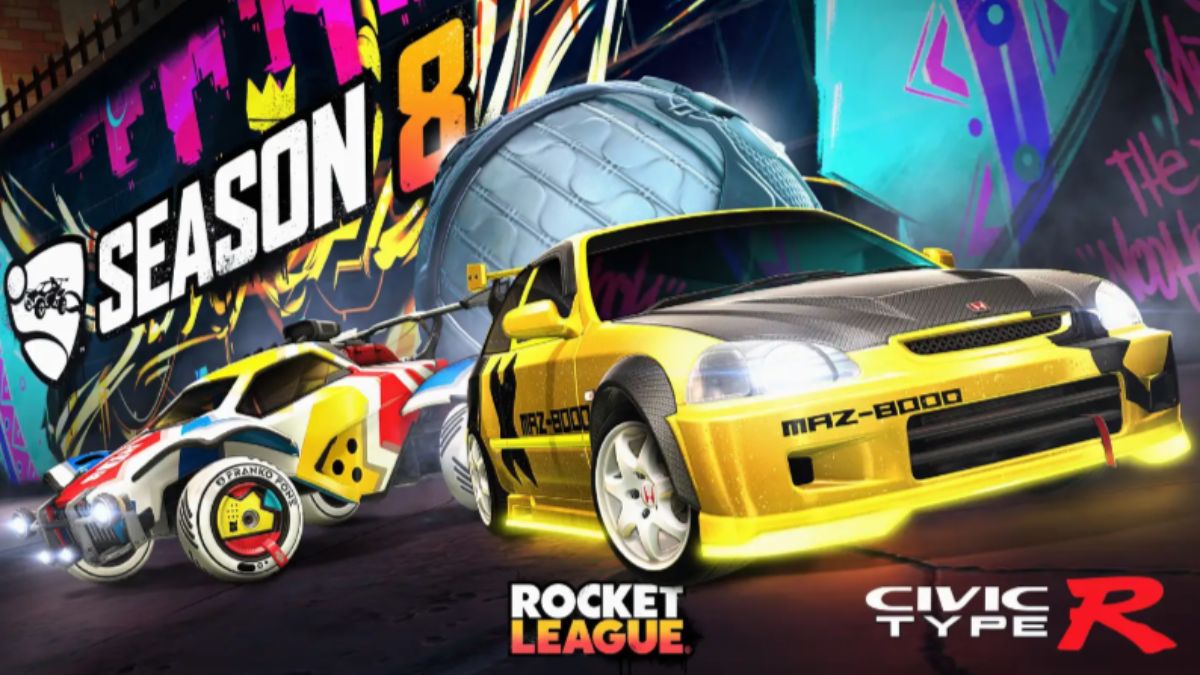Rocket League has taken the world of gaming by storm, with the deceptively simple structure of the game spawning huge eSports competitions and unique games every time you load it up. But is Rocket League CPU or GPU intensive?
Rocket League is CPU-intensive and requires at least an Intel 2.5 GHz Dual Core and GeForce GTX 760. You’ll also want to make sure you have at least 4GB of RAM but 8GB would be better.
Let’s look at the system requirements for Rocket League, whether it uses the CPU or GPU and in what proportions, as well as look at why it is important to know this information and how you can check whether this is the case with your setup.
Is Rocket League CPU-intensive?
Rocket League is generally considered to be a CPU-intensive game. This means that it puts more load relatively on the CPU rather than the GPU.
Rocket League is in fact evenly balanced between CPU and GPU usage, and some tests show it only leaning slightly towards CPU use compared to GPU use.
You can test this yourself on a Windows PC by running the game with Task Manager open and look at the utilization of the CPU and GPU. This is done with more accuracy if you have a second monitor open and can put Task Manager on that screen while playing the game.
While the fact that Rocket League uses more CPU may help you diagnose performance issues with the game or your PC, it’s probably not the best metric by which to determine whether or not to invest in an upgrade for your CPU.
If you’re concerned about computer performance, firstly you should make sure you have a dedicated GPU versus an onboard integrated graphics chip that comes on a motherboard.
There are many options to go with, including the Intel Core i3 10100, AMD Ryzen 3 3100, AMD Ryzen 5 3400G, or the AMD Ryzen 3 3300X.
When you consider games like that are fast-paced and seconds count, you want to make sure you’re erring on the side of more power to your gaming device.
An inopportune lag or freeze could be the difference between winning or losing a game by missing that crucial chance to get a goal.
On top of this, unfortunately, the reality is that over time with the addition of patches, updates and other inclusions to the game, it will get heavier in the sense that it won’t play as well on older hardware.
Is Rocket League GPU-intensive?
Rocket League is not GPU-intensive, although it does use the GPU to a limited extent. You’re going to see a performance increase if you can get your hands on even a very low powered GPU.
It will also matter how you’re playing the game, as if you’re on a 4K monitor with a 240Hz refresh rate then you’ll definitely need to beef up your card, such as by going for an NVIDIA Geforce GTX 1060.
It will also matter what refresh rate or resolution or graphic settings you’re going for, as if you’re going to put everything up to maximum or have multiple monitors, then you can’t get by on an integrated video card on the motherboard.
However, it is also possible to go the other way, and get a budget computer without a dedicated video card that relies on the integrated graphics or an iGPU and still be able to play at a decent frame rate and enjoy it.
For example, you could grab an AMD Ryzen 3 3200G or the AMD Ryzen 5 3400G as an intermediate option, as these processors have the Vega 8 and Vega 11 graphics capability respectively.
How to Know if a Game Is GPU or CPU Intensive?
There are several clues and things to look for when considering whether a particular game is GPU- or CPU-intensive. It is sometimes not so easy to tell yourself and there may be conflicting data, so sometimes it is better to research online to find the consensus.
Specific CPU or GPU models or architectures can be a big issue with games, so while it technically may exceed even the optimal requirements, it has a fundamental issue where it doesn’t run the game well.
One is to consider the age of the game. Older games are much more likely to be entirely if not mostly dependent on the CPU. Games that are taking on the modern features, particularly in regards to physics engines, are going to be very GPU-intensive.
You can look at downloading a system monitor that looks at CPU usage, GPU usage and also temperature monitoring to see how your hardware works under load, and consider improving airflow or cooling features if you notice overheating.
Other features such as shadows, reflections and other high quality graphics settings are going to put a very intense strain on a computer’s performance if you’re on an older card or an integrated graphics card.
Rocket League System Requirements
Rocket League is definitely a game that will run well on a variety of systems, including consoles and budget PCs, and even computer setups that are many years old.
So let’s have a look at the recommended and optimal system requirements so that you can consider whether the game will run well, what to target to get the optimal operation of it, and also diagnose why your Rocket League game is not running so well.
Microsoft-based PC Minimum Requirements
The Rocket League official website from Epic Games states that the minimum requirements are as follows. [1] They recommend at least Windows 7 (64 bit) or newer Windows OS.
For the CPU it is recommended you have at least a 2.5GHz Dual Core CPU and 4GB RAM. Seeing that 8GB is more the standard for Windows 10 and 11, you want to make sure you’re getting around this amount of RAM to get into the usual good operation of a computer.
For a GPU, you are advised to get at least a NVIDIA GeForce GTX 760 or a AMD Radeon R9 270X as a baseline.
You’ll also want to make sure the card supports DirectX Version 11.0 and also have a minimum of free space on your hard drive of about 20GB.
For best game performance, you’ll want to make sure you grab a M.2 drive or NVMe (if supported on your motherboard) or at least a solid state drive. This will drastically speed up the read and write speed of almost everything on your computer.
Microsoft-based PC Preferable/Recommended Requirements
The operating system remains the same for the minimum requirements, but there are some big differences in the other hardware.
You’re recommended to get at least a 3.0GHz processor, being at least a quad core setup. For RAM you should get at least 8GB.
Regarding the GPU, go for one that supports at least DirectX Version 11.0, specifically at least equal to or better than a NVIDIA Geforce GTX 1060 or AMD Radeon RX 470.
MacOS-based PC Minimum Requirements
For MacOS, you’ll need to be running at least macOS X 10.8.5 and have an Intel Core i5 2.4GHz with 8GB RAM.
For a video card, go with either the OpenGL 4.1-ATI Radeon HD 5670, an NVIDIA GeForce GT 640M, integrated Intel HD Graphics 4000, or Iris Pro Graphics.
MacOS-based PC Preferable/Recommended Requirements
The same MacOS will do fine as per the minimum requirements, but you’ll want to beef up the processor to an Intel Core i7 2.4 GHz, which for example you can get with the 2013 Apple MacBook Pro 15-Inch Core i7.
Get at least 8GB RAM and get an OpenGL 4.1-ATI Radeon HD 5670, an NVIDIA GeForce GT 640M, the Intel HD Graphics 4000, or the Iris Pro Graphics.
Linux and SteamOS-based PC Minimum Requirements
You’ll be wanting to go for at least a 2.4GHz Dual Core and make sure you have 2GB of RAM.
An NVIDIA GTX 260 or ATI 4850 will be the minimum, although you may want to boost this up a little bit. Unlike the above specs, the card only has to support DirectX Version 9.0c.
Linux and SteamOS-based PC Preferable/Recommended Requirements
Make sure you’ve got at least a 2.5GHz or better Quad Core, 4GB RAM and for the GPU go for an NVIDIA GTX 660 or ATI 7950 and above.
Conclusion
Rocket League is a game that is not particularly CPU- or GPU-intensive, but generally will need a slightly mid-range or higher CPU.


